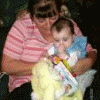Search the Community
Showing results for '"weight gain"'.
Found 15,849 results
-
I just found this app and registered. My surgery was August 19. I've finally lost all my IV fluid post op weight gain. Getting tired of drinking my meals. No major issues so far just very tired and finding it hard to get in 3 protein shakes a day.
-
It's not REAL weight gain. It's impossible to gain 4.5 lbs in real fat in one day...you'd have to take in an extra 15,000+ calories to gain 4.5 lbs. Likely just water or poop retention. Try not to let this annoying scale fluctuation bring you down and turn to food...keep doing awesomely, K? ❤️
-


Concerned: Pregnancy after Band
Shay7997 replied to Jerseydiva15's topic in POST-Operation Weight Loss Surgery Q&A
I'm 31 and I'm pregnant with my first child. I was banded June 10, 2010 and by May I was pregnant. My doc is thrilled and gave me a slight unfill because my band tightened with the pregnancy. There is absolutely no reason why I can't have a vaginal birth because of the lap band. Now, that's not to say something else would cause me to have a c-section, but right now everything is trucking right along. I'm currently 17 weeks, i'm on target with my weight gain, and I'm happy as can be. So far, baby is too! -


Brigham and Women/Faulker Hospital
thinkingaboutit77 replied to nomadem's topic in LAP-BAND Surgery Forums
All this talk of PBing, weight gain, getting stuck, is making me nervous. Less than 2 weeks for me now. I started my liquid diet and have lost about 4 lbs, which is good, cuz I have my preop appt. on Monday and it will bring me back to my last weight check..10lbs down, hoping to lose another 5 before surgery. Can someone answer this question for me? Do we have to pay for fills or are they covered by insurance, at least say the first couple? I have Blue Cross. I can see how all the filling and unfilling can get expensive if we pay out of pocket. TIA Sandy :wink:) -


The November 'band'wagon!
go4itnow replied to LadyLeigh2012's topic in PRE-Operation Weight Loss Surgery Q&A
Do you mean 3---5oz drinks or 35 oz of drink I drink a 14oz bottle of protein 3 x's a day that's it for me I get a sf pudding, popcicle or jello in between, I have had tomatoe soup but next day I have a weight gain fluid I think I think this is all trial and erro I have talked to people who say 1 day you can eat something and the next day it makes you sick just get plenty of fluids of some kind is what I was told. Good luck at the Drs. -


Lap Band Eroded - Possible Revision To Gastric Sleeve
CowgirlJane replied to FXDF2008's topic in Revision Weight Loss Surgery Forums (NEW!)
okay, gotcha, I misunderstood - I thought you were doing the revision in one surgery. So, here is my story - I had my band removed on a Thursday in September, I returned to work the following Monday. I was feeling poorly, I think reaction to the anesthesia (and maybe even a little depression over the whole band failure?). I was okay, sorta, but then got sick with a virus. I wound up working Mon-Wed that week and taking Thurs and Friday off. i think if I hadn't gotten that virus, I would have been okay with just the "long weekend" to recover. The port incision was sore for awhile though. The other thing that happened was that starting about a week after the band came out, my hunger went through the roof. I hadn't had Fluid in my band for years, but once it was removed, I felt like my stomach was a bottomless pit. I finally got control over the weight gain by doing a low carb thing with my family doc, just to kinda hold me over until I was sleeved. For me, the Sleeve was a much harder recovery. Part of the reason for that is you have very restricted fluid and calories - so in addition to all the surgery recovery you just aren't getting the fuel you are used to getting! Some people bounce right back and go to work in a week or so after the sleeve surgery. Many people needed more time, I am one of them even though I didn't have any complications. I am almost 4 weeks out, have been back at work for a week and am just exhausted. Some days are better, some are worse, but I am certainly not back to my normal self. Having said all that, I still think it is worth it. I am already enjoying being a bit lighter on my feet! -


banded and depressed
Sugarbear replied to michelle1820's topic in POST-Operation Weight Loss Surgery Q&A
Michelle, sounds like you are definitely too tight. The weight gain may make you even tighter. Have you not checked with your doctor in two years? I have heard of several instances like yours. Tight is good. Too tight is NOT. You can't eat properly when you are too tight, as you know. Small portions, SMALL bites with an annoying amount of chewing, should allow you to eat fairly well. I didn't lose weight for about 3 months...got two unfils, just a smidgeon at a time, and immediately dropped 5 pounds. Like you, I got hungary but ate band friendly foods, or did the Pbing. Don't risk a possible erosion from being too tight. See your doctor as soon as possible. Good Luck -


Brigham and Women/Faulker Hospital
singingintherain replied to nomadem's topic in LAP-BAND Surgery Forums
At my age and with my past exercise experience...or should I say 'the lack thereof..., the reasonable method(I think) for me is my treadmill. Several yrs ago I ordered a good one from Sears and find that when I DO go on it I see a big difference. This LB 'quest' began when my PCP threw up her hands about my high blood pressure caused by the constant weight gain over the past 2 years. No matter the meds, NADA! So she had to resort to the 'pact'..and made me promise..handshake over it and all to seal the deal...that I would do 10 min a day. Well, (there's always a 'well 'and a 'but' when it comes to my weightloss). I went wild! I was 'Biggest Loser Solitaire' down there in the basement on my machine and went from 10 min to doing 2 miles a day...which is a great feat for a sedentary gal like me. And then I get proud and...quit. There is always something there to use up the exercise time. So the story continues..I start anew every now and then, reach 2 miles a day, lose some weight, stop, eat, gain Round and Round. And yes...I did almost fall off. I read rather than listen as I work, and one chapter was so intriguing I lost the rhythm of the pace and almost ended up face down! Not cute at all. I am not a Water drinker, so thought now is the time to start. Went to Walgreens, Shaws,Rite Aid..no Kellogg's Protein water mix ....finally found it at CVS. I guess it is a big seller..only 2 boxes on the shelf. So now I am trying to ease into it..Carnation Instants,Water and trying to lose 5 more lbs before going back to the dear doc in a few more weeks. In this stage of the PreBand Journey I am "Learning to embrace my hunger" as one famous talk show host said recently. The treadmill needs to be dusted. Hope to meet you also tinywishes! Hope you are doing better now. Have a good day all! singingintherain -
Working out almost always causes weight gain in the days following. The primary reason is that protein synthesis pulls water into the muscles as part of the conversion of carbohydrates and fat into glycogen. Muscles will use this glycogen in the process of protein synthesis. And so the cycle continues and effects on the body are additive, meaning that you will see a net loss over time (e.g. a few days, a week, a month, etc. For this reason, it is best not to gauge the effectiveness of a workout solely on scale weight, especially the next day. <br><br><br><br><br> Also you need to eat enough calories and enough carbohydrates to fuel the workout. Insanity is going to require a lot of carbohydrates in order not to hit a wall during a workout or, worse, blackout, as you have stated almost happened a few times on your first day. Your body will work against you if it does not have enough fuel to support the expenditure of energy, as a defense mechanism, so eating is very important. No starvation diets if you want to reap the benefits. Not only will 500 calories cause you to hit a wall during a workout, but continually eating at such a deficit is going to put your metabolism into hibernation (you are 3 + years post op; I would not say the same thing to a 4 month post op individual). <br><br><br><br><br> Good luck on your insanity program. It should be a good one and will help you change body composition in addition to weight loss.
-
This week my calories were in the 1000 - 1200 range each day. My carbs were around 100, and my protein at about 80. I got some cottage cheese to try, I remember disliking it in my teens, but MsSS has inspired me to give it another go. My weight stayed pretty consistent this week, which, given the increased carbs is awesome. Increased carbs tends to = water weight gains for me. My size has shrunk, so I’d say I’m still losing fat. Our household has worked out a meal scheme. My husband and eldest are each responsible for one dinner a week, I’m responsible for 2, and youngest (the best cook) is taking 3. The dinners each have to include a veggie as well as protein. Tonight I made chicken pot pie from one of the Skinny Taste books. I subbed gardein scalopinis for the chicken, and used vegetarian “chicken” broth. So, the whole family can eat it. I have to say, the increased carbs have me feeling a MILLION times better. My weekend trail run is up to 4 miles, I added in tempo work to my during the week running schedule, and I don’t even feel like utter crap! I was really feeling run down prior to switching to maintenance.
-
Been with my husband for 23 yrs, married for almost 19. We've always been known to be extremely physically attracted to each other, even with our weight gain over the yrs. my husband has no problem dropping pounds, where it was never easy for me. But sex has always been great. NOW, after the sleeve is a different incredible experience. While hubbie was very supportive during my struggle to get healthy, surgery or not, I think he's happier than I am now. I think he thinks he has a new wife. I laugh & tell him I'm new & improved. Lol... Everything has gotten smaller, not worried about that because I was a size 3/4 when I met my husband & a 5/6 when we married. So not worried about him seeing my small boobs, smaller bottom, or my very very small scars. Yes, I feel more confident that I no long look like I am pregnant. No longer have to spend hundreds of $$$$ on body magic garments to tuck stomach. Everything has shrunk to both our liking & appreciation. And still shrinking. When I say everything has shrunk, it's left one thing exposed quite often. "Not being shy, right?" So when I walk or sit, I'm turned on. Incredible!!!!!! So you can only imagine what happens by the time I meet up with my husband thoughtful the days. Funny that we do stuff now that I don't recall doing years ago when I was a size 7-8. We laugh now only saying I was still being "conservative" then, now that we really really now & respect each other, the things we do, WOW!!!! I new found attraction. Oh so happy!!!!!
-


banded, banding, bands--verb--To assemble or unite in a group
ElfiePoo replied to LeighaMason's topic in POST-Operation Weight Loss Surgery Q&A
One day at a time...today is Day 3 on Atkins Induction. Surprisingly, I'm not craving as much as I have in the past when I went on induction. Maybe it's the mental attitude of seeing my carbs as a true addiction and knowing that I'm avoiding them completely for that reason...and not just a diet to lose weight? Who knows the head games we play with ourselves. :smile: At any rate, my headache is finally gone and I feel better than I usually do the first week. The mental fog seems to be gone as well. Bonus - my belly is shrinking again. At some point, after that initial reshifting of body weight (skinny legs, no butt or hips, belly reducing) any weight gain (which I did when I went from onederland back up about 20 pounds) went right to the tummy so it's nice to see it shrinking back down. Since I'm on the induction phase I don't worry about monitoring the quantity...just making sure I'm eating minimal carbs. So, since it's a cold, rainy day I think I'm going to make a pot of my chinese Soup so I can sip on it throughout the day. It's pretty low calorie anyway but very satisfying. Only 4 more days to Disney! WOOHOO! . -
We had a change in insurance mid year and I had to start all my check ups again but I didn't have to re-do any of the medical test. I only had to do a 3 year weight history and since I didn't have it because we moved 2 yrs ago and I havent seen a doctor I just had to write a letter and send 3 yrs of pictures to show the weight gain. Hang in there it is so worth it.
-


Help. Weight gain 2 years out. Is it the meds?
rs replied to Jay453's topic in POST-Operation Weight Loss Surgery Q&A
What source did you use that said weight gain is a side effect of Zoloft? I've been on Zoloft for years before surgery and have continued since surgery one year ago, and have not noticed weight gain because of it. This screenshot actually mentions weight *loss* as a possible side effect. Source: https://www.rxlist.com/zoloft-side-effects-drug-center.htm -


How much weight did you lose after your tummy tuck?
Queen of Crop replied to Angie65's topic in Plastic & Reconstructive Surgery
So sorry to hear about your weight gain, of course we all fear that. I have been at my goal weight for 3 years (took me one year to get there) but in the past month I have gained 5 lbs and have now hit the reality that I must get this off before it becomes 10 lbs....and I'm really confident I can. Knowing my surgery is in Feb is an incentive because my doctor wants me to lose some weight before hand so it will be more successful. I am easing into the 5 day pouch test with doing the 5:2 this week....today being one of my fast days. I'm just curious though, it sounds like you think you should have waited to have the surgery until you were at goal weight? I can't imagine the trauma your body and your hormones went through with both a hysterectomy and a panniculectomy. -


found this on another forum ,what do you think?
nicki763 posted a topic in Tell Your Weight Loss Surgery Story
Pouch Rules for DummiesINTRODUCTION: A common misunderstanding of gastric bypass surgery is that the pouch causes weight loss because it is so small, the patient eats less. Although that is true for the first six months, that is not how it works. Some doctors have assumed that poor weight loss in some patients is because they aren’t really trying to lose weight. The truth is it may be because they haven’t learned how to get the satisfied feeling of being full to last long enough. HYPOTHESIS OF POUCH FUNCTION: We have four educated guesses as to how the pouch works: 1. Weight loss occurs by actually slightly stretching the pouch with food at each meal or; 2. Weight loss occurs by keeping the pouch tiny through never ever overstuffing or; 3. Weight loss occurs until the pouch gets worn out and regular eating begins or; 4 Weight loss occurs with education on the use of the pouch. PUBLISHED DATA: How does the pouch make you feel full? The nerves tell the brain the pouch is distended and that cuts off hunger with a feeling of fullness. What is the fate of the pouch? Does it enlarge? If it does, is it because the operation was bad, or the patient is overstuffing themselves, or does the pouch actually re-grow in a healing attempt to get back to normal? For ten years, I had patients eat until full with cottage cheese every three months, and report the amount of cottage cheese they were able to eat before feeling full. This gave me an idea of the size of their pouch at three month intervals. I found there was a regular growth in the amount of intake of every single pouch. The average date the pouch stopped growing was two years. After the second year, all pouches stopped growing. Most pouches ended at 6 oz., with some as large at 9-10 ozs. We then compared the weight loss of people with the known pouch size of each person, to see if the pouch size made a difference. In comparing the large pouches to the small pouches, THERE WAS NO DIFFERENCE IN PERCENTAGE OF WEIGHT LOSS AMONG THE PATIENTS. This important fact essentially shows that it is NOT the size of the pouch but how it is used that makes weight loss maintenance possible. OBSERVATIONAL BASED MEDICINE: The information here is taken from surgeon’s “observations” as opposed to “blind” or “double blind” studies, but it IS based on 33 years of physician observation. Due to lack of insurance coverage for WLS, what originally seemed like a serious lack of patients to observe, turned into an advantage as I was able to follow my patients closely. The following are what I found to effect how the pouch works: 1. Getting a sense of fullness is the basis of successful WLS. 2. Success requires that a small pouch is created with a small outlet. 3. Regular meals larger than 1 � cups will result in eventual weight gain. 4. Using the thick, hard to stretch part of the stomach in making the pouch is important. 5. By lightly stretching the pouch with each meal, the pouch send signals to the brain that you need no more food. 6. Maintaining that feeling of fullness requires keeping the pouch stretched for awhile. 7. Almost all patients always feel full 24/7 for the first months, then that feeling disappears. 8. Incredible hunger will develop if there is no food or drink for eight hours. 9. After 1 year, heavier food makes the feeling of fullness last longer. 10. By drinking Water as much as possible as fast as possible (“water loading”), the patient will get a feeling of fullness that lasts 15-25 minutes. 11. By eating “soft foods” patients will get hungry too soon and be hungry before their next meal, which can cause snacking, thus poor weight loss or weight gain. 12. The patients that follow “the rules of the pouch” lose their extra weight and keep it off. 13. The patients that lose too much weight can maintain their weight by doing the reverse of the “rules of the pouch.” HOW DO WE INTERPRET THESE OBSERVATIONS? POUCH SIZE: By following the “rules of the pouch”, it doesn’t matter what size the pouch ends up. The feeling of fullness with 1 � cups of food can be achieved. OUTLET SIZE: Regardless of the outlet size, liquidy foods empty faster than solid foods. High calorie liquids will create weight gain. EARLY PROFOUND SATIETY: Before six months, patients much sip water constantly to get in enough water each day, which causes them to always feel full. After six months, about 2/3 of the pouch has grown larger due to the natural healing process. At this time, the patient can drink 1 cup of water at a time. OPTIMUM MATURE POUCH: The pouch works best when the outlet is not too small or too large and the pouch itself holds about 1 � cups at a time. IDEAL MEAL PROCESS (rules of the pouch): 1. The patient must time meals five hours apart or the patient will get too hungry in between. 2. The patient needs to eat finely cut meat and raw or slightly cooked veggies with each meal. 3. The patient must eat the entire meal in 5-15 minutes. A 30-45 minute meal will cause failure. 4. No liquids for 1 � hours to 2 hours after each meal. 5. After 1 � to 2 hours, begin sipping water and over the next three hours slowly increase water intake. 6. 3 hours after last meal, begin drinking LOTS of water/fluids. 7. 15 minutes before the next meal, drink as much as possible as fast as possible. This is called “water loading.” IF YOU HAVEN’T BEEN DRINKING OVER THE LAST FEW HOURS, THIS ‘WATER LOADING’ WILL NOT WORK. 8. You can water load at any time 2-3 hours before your next meal if you get hungry, which will cause a strong feeling of fullness. THE MANAGEMENT OF PATIENT TEACHING AND TRAINING: You must provide information to the patient pre-operatively regarding the fact that the pouch is only a tool: a tool is something that is used to perform a task but is useless if left on a shelf unused. Practice working with a tool makes the tool more effective. NECESSITY FOR LONG TERM FOLLOW-UP: Trying to practice the “rules of the pouch” before six to 12 months is a waste. Learning how to delay hunger if the patient is never hungry just doesn’t work. The real work of learning the “rules of the pouch” begins after healing has caused hunger to return. PREVENTION OF VOMITING: Vomiting should be prevented as much as possible. Right after surgery, the patient should sip out of 1 oz cups and only 1/3 of that cup at a time until the patient learns the size of his/her pouch to avoid being sick. It is extremely difficult to learn to deal with a small pouch. For the first 6 months, the patient’s mouth will literally be bigger than his/her stomach, which does not exist in any living animal on earth. In the first six weeks the patient should slowly transfer from a liquid diet to a blenderized or soft food diet only, to reduce the chance of vomiting. Vomiting will occur only after eating of solid foods begins. Rice, Pasta, granola, etc. will swell in time and overload the pouch, which will cause vomiting. If the patient is having trouble with vomiting, he/she needs to get 1 oz cups and literally eat 1 oz of food at a time and wait a few minutes before eating another 1 oz of food. Stop when “comfortably satisfied,” until the patient learns the size of his/her pouch. SIX WEEKS After six weeks, the patient can move from soft foods to heavy solids. At this time, they should use three or more different types of foods at each sitting. Each bite should be no larger than the size of a pinkie fingernail bed. The patient should choose a different food with each bite to prevent the same solids from lumping together. No liquids 15 minutes before or 1 � hours after meals. REASSURANCE OF ADEQUATE NUTRITION By taking Vitamins everyday, the patient has no reason to worry about getting enough nutrition. Focus should be on Proteins and vegetables at each meal. MEAL SKIPPING Regardless of lack of hunger, patient should eat three meals a day. In the beginning, one half or more of each meal should be Protein, until the patient can eat at least two oz of protein at each meal. ARTIFICIAL SWEETENERS In our study, we noticed some patients had intense hunger cravings which stopped when they eliminated artificial sweeteners from their diets. AVOIDING ABSOLUTES Rules are made to be broken. No biggie if the patient drinks with one meal – as long as the patient knows he/she is breaking a rule and will get hungry early. Also if the patient pigs out at a party – that’s OK because before surgery, the patient would have pigged on 3000 to 5000 calories and with the pouch, the patient can only pig on 600-1000 calories max. The patient needs to just get back to the rules and not beat him/herself up. THREE MONTHS At three months, the patient needs to become aware of the calories per gram of different foods to be aware of “the cost” of each gram. (cheddar cheese is 16 cal/gram; Peanut Butter is 24 cals/gram). As soon as hunger returns between three to six months, begin water loading procedures. THREE PRINCIPLES FOR GAINING AND MAINTAINING SATIETY 1. Fill pouch full quickly at each meal. 2. Stay full by slowing the emptying of the pouch. (Eat solids. No liquids 15 minutes before and none until 1 � hours after the meal). A scientific test showed that a meal of egg/toast/milk had almost all emptied out of the pouch after 45 minutes. Without milk, just egg and toast, more than � of the meal still remained in the pouch after 1 � hours. 3. Protein, protein, protein. Three meals a day. No high calorie liquids. Fluid LOADING Fluid loading is drinking water/liquids as quickly as possible to fill the pouch which provides the feeling of fullness for about 15 to 25 minutes. The patient needs to gulp about 80% of his/her maximum amount of liquid in 15 to 30 SECONDS. Then just take swallows until fullness is reached. The patient will quickly learn his/her maximum tolerance, which is usually between 8-12 oz. Fluid loading works because the roux limb of the intestine swells up, contracting and backing up any future food to come into the pouch. The pouch is very sensitive to this and the feeling of fullness will last much longer than the reality of how long the pouch was actually full. Fluid load before each meal to prevent thirst after the meal as well as to create that feeling of fullness whenever suddenly hungry before meal time. POST PRANDIAL THIRST It is important that the patient be filled with water before his/her next meal as the meal will come with salt and will cause thirst afterwards. Being too thirsty, just like being too hungry will make a patient nauseous. While the pouch is still real small, it won’t make sense to the patient to do this because salt intake will be low, but it is a good habit to get into because it will make all the difference once the pouch begins to regrow. URGENCY The first six months is the fastest, easiest time to lose weight. By the end of the six months, 2/3 of the regrowth of the pouch will have been done. That means that each present day, after surgery you will be satisfied with less calories than you will the very next day. Another way to put it is that every day that you are healing, you will be able to eat more. So exercise as much as you can during that first six months as you will never be able to lose weight as fast as you can during this time. SIX MONTHS Around this time, our patients begin to get hungry between meals. THEY NEED TO BATTLE THE EXTRA SALT INTAKE WITH DRINKING LOTS OF FLUIDS IN THE TWO TO THREE HOURS BEFORE THEIR NEXT MEAL. Their pouch needs to be well watered before they do the last gulping of water as fast as possible to fill the pouch 15 minutes before they eat. INTAKE INFORMATION SHEET AS A TEACHING TOOL I have found that having the patients fill out a quiz every time they visit reminds them of the rules of the pouch and helps to get them “back on track.” Most patients have no problems with the rules, some patients really struggle to follow them and need a lot of support to “get it”, and a small percentage never quite understand these rules, even though they are quite intelligent people. HONEYMOON SYNDROME The lack of hunger and quick weight loss patients have in the first six months sometimes leads them to think they don’t need to exercise as much and can eat treats and extra calories as they still lose weight anyway. We call this the “honeymoon syndrome” and they need to be counseled that this is the only time they will lose this much weight this fast and this easy and not to waste it by losing less than they actually could. If the patient’s weight loss slows in the first six months, remind them of the rules of water intake and encourage them to increase their exercise and drink more water. You can compare their weight loss to a graph showing the average drop of weight if it will help them to get back on track. EXERCISE In addition to exercise helping to increase the weight loss, it is important for the patient to understand that exercise is a natural antidepressant and will help them from falling into a depression cycle. In addition, exercise jacks up their metabolic rate during a time when their metabolism after the shock of surgery tends to want to slow down. THE IDEAL MEAL FOR WEIGHT LOSS The ideal meal is one that is made up of the following: � of your meal to be low fat protein, � of your meal low starch vegetables and � of your meal solid fruits. This type of meal will stay in your pouch a long time and is good for your health. VOLUME VS. CALORIES The gastric bypass patient needs to be aware of the length of time it takes to digest different foods and to focus on those that take up the most space and take time to digest so as to stay in the pouch the longest, don’t worry about calories. This is the easiest way to “count your calories.” For example, a regular stomach person could gag down two whole sticks of butter at one sitting and be starved all day long, although they more than have enough calories for the day. But you take the same amount of calories in vegetables, and that same person simply would not be able to eat that much food at three sittings – it would stuff them way too much. ISSUES FOR LONG TERM WEIGHT MAINTENANCE Although everything stated in this report deals with the first year after surgery, it should be a lifestyle that will benefit the gastric bypass patient for years to come, and help keep the extra weight off. COUNTER-INTUITIVENESS OF FLUID MANAGEMENT I admit that avoiding fluids at meal time and then pushing hard to drink fluids between meals is against everything normal in nature and not a natural thing to be doing. Regardless of that fact, it is the best way to stay full the longest between meals and not accidentally create a “soup” in the stomach that is easily digested. SUPPORT GROUPS It is natural for quite a few people to use the rules of the pouch and then to tire of it and stop going by the rules. Others “get it” and adhere to the rules as a way of life to avoid ever regaining extra weight. Having a support group makes all the difference to help those that go astray to be reminded of the importance of the rules of the pouch and to get back on track and keep that extra weight off. Support groups create a “peer pressure” to stick to the rules that the staff at the physician’s office simply can’t create. TEETER TOTTER EFFECT Think of a teeter totter suspended in mid air in front of you. Now on the left end is exercise that you do and the right end is the foods that you eat. The more exercise you do on the left, the less you need to worry about the amount of foods you eat on the right. In exact reverse, the more you worry about the foods you eat and keep it healthy on the right, the less exercise you need on the left. Now if you don’t concern yourself with either side, the higher the teeter totter goes, which is your weight. The more you focus on one side or the other, or even both sides of the teeter totter, the lower it goes, and the less you weigh. TOO MUCH WEIGHT LOSS I have found that about 15% of the patients which exercise well and had between 100 to 150 lbs to lose, begin to lose way too much weight. I encourage them to keep up the exercise (which is great for their health) and to essentially “break the rules” of the pouch. Drink with meals so they can eat Snacks between without feeling full and increase their fat content as well take a longer time to eat at meals, thus taking in more calories. A small but significant amount of gastric bypass patients actually go underweight because they have experienced (as all of our patients have experienced) the ravenous hunger after being on a diet with an out of control appetite once the diet is broken. They are afraid of eating again. They don’t “get” that this situation is literally, physically different and that they can control their appetite this time by using the rules of the pouch to eliminate hunger. BARIATRIC MEDICINE A much more common problem is patients who after a year or two plateau at a level above their goal weight and don’t lose as much weight as they want. Be careful that they are not given the “regular” advice given to any average overweight individual. Several small meals or skipping a meal with a Liquid Protein substitute is not the way to go for gastric bypass patients. They must follow the rules, fill themselves quickly with hard to digest foods, water load between, increase their exercise and the weight should come off much easier than with regular people diets. SUMMARY 1. The patient needs to understand how the new pouch physically works. 2. The patient needs to be able to evaluate their use of the tool, compare it to the ideal and see where they need to make changes. 3. Instruct your patient in all ways (through their eyes with visual aids, ears with lectures and emotions with stories and feelings) not only on how but why they need to learn to use their pouch. The goal is for the patient to become an expert on how to use the pouch. EVALUATION FOR WEIGHT LOSS FAILURE The first thing that needs to be ruled out in patients who regain their weight is how the pouch is set up. 1. the staple line needs to be intact; 2. same with the outlet and; 3. the pouch is reasonably small. 1) Use thick barium to confirm the staple line is intact. If it isn’t, then the food will go into the large stomach, from there into the intestines and the patient will be hungry all the time. Check for a little ulcer at the staple line. A tiny ulcer may occur with no real opening at the line, which can be dealt with as you would any ulcer. Sometimes, though, the ulcer is there because of a break in the staple line. This will cause pain for the patient after the patient has eaten because the food rubs the little opening of the ulcer. If there is a tiny opening at the staple line, then a reoperation must be done to actually separate the pouch and the stomach completely and seal each shut. 2) If the outlet is smaller than 7-8 mill, the patient will have problems eating solid foods and will little by little begin eating only easy-to-digest foods, which we call “soft calorie syndrome.” This causes frequent hunger and grazing, which leads to weight regain. 3) To assess pouch volume, an upper GI doesn’t work as it is a liquid. The cottage cheese test is useful – eating as much cottage cheese as possible in five to 15 minutes to find out how much food the pouch will hold. It shouldn’t be able to hold more than 1 � cups in 5 – 15 minutes of quick eating. If everything is intact then there are four problems that it may be: 1) The patient has never been taught the rules; 2) The patient is depressed; 3) The patient has a loss of peer support and eventual forgetting of rules, or 4) The patient simply refuses to follow the rules. LACK OF TEACHING An excellent example is a female patient who is 62 years old. She had the operation when she was 47 years old. She had a total regain of her weight. She stated that she had not seen her surgeon after the six week follow up 15 years ago. She never knew of the rules of the pouch. She had initially lost 50 lbs and then with a commercial weight program lost another 40 lbs. After that, she yo-yoed up and down, each time gaining a little more back. She then developed a disease (with no connection to bariatric surgery) which weakened her muscles, at which time she gained all of her weight back. At the time she came to me, she was treated for her disease, which helped her to begin walking one mile per day. I checked her pouch with barium and the cottage cheese test which showed the pouch to be a small size and that there was no leakage. She was then given the rules of the pouch. She has begun an impressive and continuing weight loss, and is not focused on food as she was, and feeling the best she has felt since the first months after her operation 15 years ago. DEPRESSION Depression is a strong force for stopping weight loss or causing weight gain. A small number of patients, who do well at the beginning, disappear for awhile only to return having gained a lot of weight. It seems that they almost on purpose do exactly opposite of everything they have learned about their pouch: they graze during the day, drink high calorie beverages, drink with meals and stop exercising, even though they know exercise helps stop depression. A 46 year-old woman, one year out of her surgery had been doing fine when her life was turned upside down with divorce and severe teenager behavior problems. Her weight skyrocketed. Once she got her depression under control and began refocusing on the rules of the pouch, added a little exercise, the weight came off quickly. If your patient begins weight gain due to depression, get him/her into counseling quickly. Encourage your patient to refocus on the pouch rules and try to add a little exercise every day. Reassure your patient that he/she did not ruin the pouch, that it is still there, waiting to be used to help with weight control. When they are ready the pouch can be used once again to lose weight without being hungry. EROSION OF THE USE OF PRINCIPLES: Some patients who are compliant, who are not depressed and have intact pouches, will begin to gain weight. These patients are struggling with their weight, have usually stopped connecting with their support groups, and have begun living their “new” life surrounded by those who have not had bariatric surgery. Everything around them encourages them to live life “normal” like their new peers: they begin taking little sips with their meals, and eating quick and easy-to-eat foods. The patient will not usually call their physician’s office because they KNOW what they are doing is wrong and KNOW that they just need to get back on track. Even if you offer “refresher courses” for your patients on a yearly basis, they may not attend because they KNOW what the course is going to say, they know the rules and how they are breaking them. You need to identify these patients and somehow get them back into your office or back to interacting with their support group again. Once these patients return to their support group, and keep in contact with their WLS peers, it makes it much easier to return to the rules of the pouch and get their weight under control once again. TRUE NON-COMPLIANCE: The most difficult problem is a patient who is truly non-compliant. This patient usually leaves your care, complains that there is no ‘connection’ between your staff and themselves and that they were not given the time and attention they needed. Most of the time, it is depression underlying the non-compliance that causes this attitude. A truly non-compliant patient will usually end up with revisions and/or reversal of the surgery due to weight gain or complications. This patient is usually quite resistant to counseling. There is not a whole lot that can be done for these patients as they will find a reason to be unhappy with their situation. It is easier to identify these patients BEFORE surgery than to help them afterwards, although I really haven’t figured out how to do that yet… Besides having a psychological exam done before surgery, there is no real way to find them before surgery and I usually tend toward the side of offering patients the surgery with education in hopes they can live a good and healthy life. -
Hello all, I posted this tread in the pre-op forum but didn't get response from any that had already been banded. Just wondered if any of you had any experience with this... if you don't mind taking a look!! :smile: http://www.lapbandtalk.com/f84/weight-gain-6-morbid-obesity-supervised-diet-56652/ I appreciate your input!
-
I am currently on Prednisone 15mg per day, Plaquinil 400mg per day, folic acid, nexium, and will start Methotrexate injections on Sunday. I am really leery of the Methotexate as the side effects are quite nasty, hair loss, stomach bleeding, almost total supression of your immune system so a common cold or flu can turn dangerous. Log term use of the Plaquinil can effect your eyesight as well. Prednisone has been a lifesaver lately, but it promotes weight gain and robs your body of potassium and other vital nutrients. I will start the meds as my Rheumatologist wants me to, but I am hoping if I go vegetarian and get the inflammation under control that I can slowly wean off of the meds and control it through diet. This is the worst sort of pain I have ever had in my life, it is constant and debilatating at times. So I will try anything. I hate being sidetracked from my lapband journey like this, I had come so far and was doing so well b4 this hit. I was walking everyday, now I can barely walk 10 feet at a time.
-
Hello All, I'm new and will have 1 year with the band on April 4th and have lost 128 lbs. I have found it to be very rewarding and can (almost) keep up with my 2.5 year old boy, lol. My diabetes is gone and I feel great! My yard hasn't looked better, and I am driving my wife nuts with all of the projects I am doing around the house. I found this website due to the fact I am looking for some help. Recently I have been experiencing sever 12-15 lb Water retention weight gain. I went to the doctor, and had kidney and blood tests done, both fine and perfect. And I am looking for any help I can get, I am very active outside of work, I work out 3 times a week, walk the dog every night. So any help or advise would be appreciated, I am currently exploring this site, so bare with me if I make any etiquette errors. Thanks and hope to speak to you soon!
-
So I'm new to this site but I'm happy to be here and thrilled to find a forum for black folks. I'm 26 years old with no health issues until I found out I had hypothyroidism 3 weeks prior to surgery which explained the excessive weight gain! This made my choice easier. I'm 4 weeks post-op down 30 pounds sleeved on 9-18-13 and I did this to remain healthy! :-)
-
Hi everyone, I am 6 months out and have lost 57 lbs so far. (229 to 172) I have been on the mini pill for about 18 months, and it was great my periods had stopped completely. But now they have come back with a vengeance ... So I was looking at other options like the implant or injection... The only thing is I have read a side effect is weight gain. Had anyone any experience of this? I'm after a contraception with stops my period and hopefully doesn't make me pike on the pounds :-(
-


I'm getting RE-SLEEVED! Anyone else done this yet?
alchaley posted a topic in Gastric Sleeve Surgery Forums
I was originally sleeved in 2013 and was approved through a new insurance company to be sleeved AGAIN this year! Sadly my sleeve failed due to several major life occurrences and it stretched back out to the point that I've gained back half of the 100 pounds I had originally lost post op. Maybe I failed my sleeve, not the other way around but I'm not here to be judged. My dad died, I got divorced (and it was UGLY), fought for custody of my son (and won!), moved 3 times and then finally bought a house, was diagnosed with Bell's Palsy, got remarried and I had a heart attack all in the past 5 years!!! That being said, I'm ready to get resleeved but I've never met anyone who has done this. ANYONE??????? My only issue is the weight gain, I don't have GERD or any reflux issues or a hernia. I'm just fat again and can't lose it back. -


Anyone get banded that started under 200 lbs to begin with?
New Hope replied to a topic in LAP-BAND Surgery Forums
I'm also a shortie. I did have a lot of co-morbidities that I know are directly related to weight gain (high blood pressure, asthma, arthritis). The things I listed to do are things I didn't start doing until after being banded. I wish I'd known to do them before I got to my max. weight! I sincerely hope that your Lupus tests will remain negative. Good luck to you in your search for better health! -
I agree Michee. Protein is calories, just like any other food. Protein has similar calories as carbs gram for gram and if you eat too much protein, and that leads to excess calories, it WILL make you fat just like any other food. However you can play around a lot with how much of your daily calorie intake is made up of protein v carbs v fat of course. The way protein damages the kidneys is not by taking 40 grams at a sitting. overtime if you have a very high protein intake (like over 100 grams a day), your body doubles the rate at which it excretes Calcium and THAT can cause kidney stones and gall stones (the calcium based ones) and also if you take in your protein with a lot of animal products and saturated fats you can predispose yourself to gout (nitrates) and heart disease. However, if you take in a lot of manufactured protein (as in soy products) this can have detrimental effects on the hormonal systems of the body, particularly males. Body builders LOOK fantastically healthy. That doesnt mean they are. Big muscles does not equal cardiovascular fitness or health for example. Many body builders cant run around the block and they can have awful blood make-ups. It has to be done right and it doesnt transpose that because you're an average joe, working out four times a week you can go slogging three or four Protein shakes a day and the calories wont add up, or you wont be overdoing the protein. You need "adequate" protein to grow muscles, more doesnt equal bigger muscles necessarily. Moderation is the key. 60 grams a day for a woman is fine, there's absolutely nothing dangerous about that, but it should come from a variety of sources, dont overdo any one food or rely totally on shakes. Protein shakes on top of a normal diet can easily cause weight gain if you're not burning it all off. And protein is not complete nutrition, you also have to remember all the other elements of a healthy diet. But even staunch carb eater that I am, I do have to admit that a high protein Breakfast stops the mid afternoon cravings for sweet carbs So lately, I have been trying to do that. For me, high protein breakfast and high protein lunch = awful awful gas. High protein breakfast and then my normal carb based lunch (like a sandwich including a small serve of protein like chicken or egg) = no naughty treats in the afternoon. dinner for me is usually a protein and veges, I usually cant fit in the starch, but sometiems we do have Pasta.
-


Rheumatoid Arthritis and Gastric Bypass
mousecat88 replied to SimoneMonet's topic in Gastric Bypass Surgery Forums
I have RA. I was diagnosed with juvenile RA when I was a toddler; I'm 30 now. I couldn't take prednisone because it caused massive weight gain. I was taking oral prescription NSAIDs and a TON of Ibuprofen. My surgeon said topical NSAIDs are fine - that seems to vary between surgeons. I haven't used it yet, though, so I don't know if it works. I haven't had much pain lately, and I try to avoid taking anything unless it is very severe. I can tell you that even when I was thin (and a child), being smaller did not have any effect on my symptoms. In fact, the worst flare-ups I had were when I was a teenager and I was 130lbs then.















